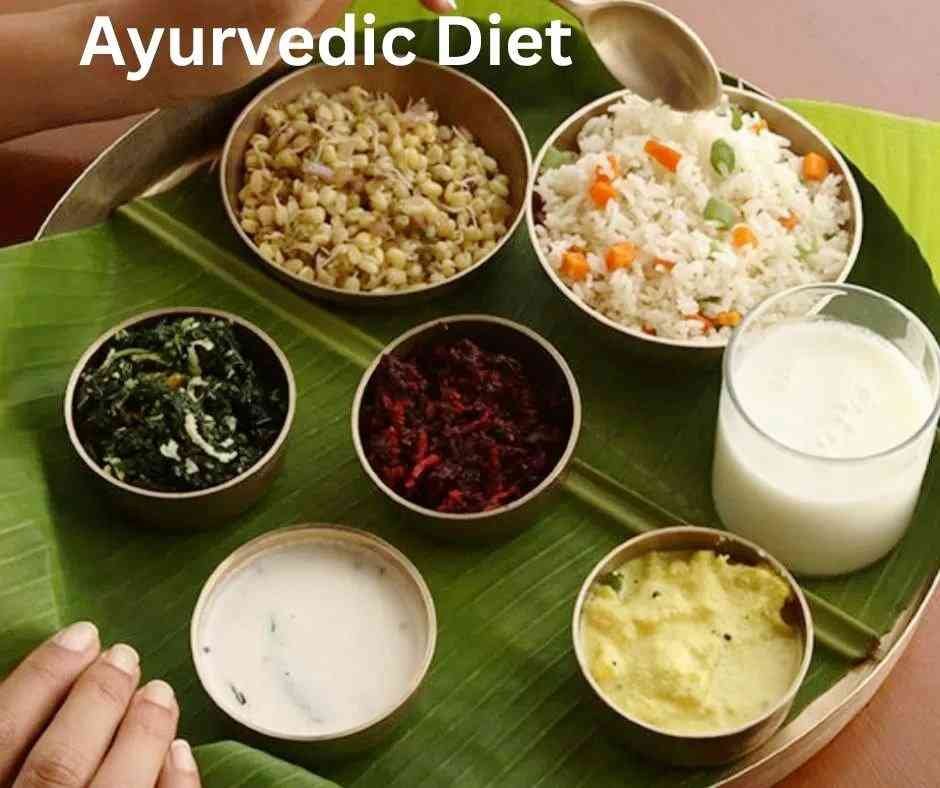Ayurveda is an ancient Indian system of medicine that emphasizes holistic healing through diet, lifestyle, and herbal remedies. The Ayurvedic diet is a way of eating based on the principles of Ayurveda, which aims to promote balance and harmony in the body and mind. In this blog post, we will explore what the Ayurvedic diet entails and its potential health benefits.
What do you eat on an ayurvedic diet?
On an Ayurvedic diet, you would typically eat a variety of whole foods, including fresh fruits and vegetables, whole grains, legumes, nuts, and seeds. The specific foods you eat may depend on your individual dosha, which is a unique combination of physical and emotional characteristics according to Ayurveda. Additionally, the Ayurvedic diet encourages mindful eating, which means taking time to savor and appreciate your food, chewing slowly, and avoiding distractions during meals.
What are the health benefits of an ayurvedic diet?
There are several potential health benefits of an Ayurvedic diet, including improved digestion, increased energy levels, reduced inflammation, and better overall well-being. The emphasis on whole foods and mindful eating can help promote healthy weight management and improve gut health. Additionally, some Ayurvedic spices and herbs have been shown to have medicinal properties that may provide additional health benefits. However, more research is needed to fully understand the health effects of an Ayurvedic diet.
What are the ayurvedic eating times?
Ayurveda recommends specific eating times to support healthy digestion and promote overall wellness. The largest meal of the day should be eaten at midday when digestion is strongest, while dinner should be a lighter meal eaten a few hours before bedtime to allow for proper digestion. Ayurveda also advises against snacking between meals to give the digestive system time to rest and recover. Additionally, it is recommended to eat meals in a calm and relaxed environment, free from distractions or stress.
What foods should be avoided in ayurveda?
Ayurveda recommends avoiding certain foods that may disrupt the balance of the body and mind. These include processed and packaged foods, fried and greasy foods, sugary drinks and snacks, and foods that are difficult to digest. Additionally, Ayurveda advises against eating incompatible food combinations, such as mixing milk with sour or acidic foods. Certain foods may also be avoided or limited based on an individual’s dosha or specific health concerns. It’s important to work with a qualified Ayurvedic practitioner to determine which foods to avoid or limit based on your individual needs.
What are the three body types of ayurveda?
According to Ayurveda, there are three main body types or doshas: Vata, Pitta, and Kapha. Each dosha represents a unique combination of physical and emotional characteristics. Vata is associated with air and ether elements, and is characterized by qualities such as lightness, dryness, and movement. Pitta is associated with fire and water elements, and is characterized by qualities such as heat, intensity, and transformation. Kapha is associated with earth and water elements, and is characterized by qualities such as heaviness, stability, and nourishment. Understanding your dosha can help guide your dietary and lifestyle choices for optimal health and wellness.
History of the Ayurvedic Diet
The Ayurvedic diet has its roots in ancient Indian culture and has been practiced for thousands of years. The principles of Ayurveda are based on the belief that optimal health and well-being can be achieved through a holistic approach that includes diet, lifestyle, and herbal remedies. The earliest written records of Ayurvedic medicine date back to around 1500 BCE, and Ayurveda has continued to evolve and adapt over time. Today, Ayurveda is recognized as a complementary and alternative medicine system and is practiced all over the world. The Ayurvedic diet has gained popularity in recent years as people seek natural and holistic approaches to health and wellness.
How the Ayurvedic Diet Works
The Ayurvedic diet works by emphasizing whole foods and mindful eating to support optimal health and well-being. The diet is tailored to an individual’s unique dosha, or mind-body type, and may include specific foods and spices to balance the doshas and promote overall balance in the body and mind. The Ayurvedic diet also recommends specific eating times and advises against snacking between meals to support healthy digestion. Additionally, the Ayurvedic diet encourages mindful eating practices, such as taking time to savor and appreciate food, chewing slowly, and avoiding distractions during meals. By incorporating these principles into their diet and lifestyle, individuals may experience improved digestion, increased energy, and better overall health and well-being.
What Does an Ayurvedic Diet Cost?
The cost of following an Ayurvedic diet can vary depending on individual factors such as location, access to certain foods, and whether one chooses to work with an Ayurvedic practitioner or follow a self-guided approach. Working with an Ayurvedic practitioner for personalized dietary recommendations may incur additional costs, but can be beneficial for those looking for a tailored approach. However, the Ayurvedic diet itself does not require any special equipment or expensive ingredients, and many of the recommended foods and spices are readily available and affordable. Incorporating Ayurvedic principles into one’s diet and lifestyle can be done on a budget by focusing on whole foods and mindful eating practices, and choosing to prioritize certain foods and spices based on individual needs and dosha type.





I m very hungry in morning plz tell what diet should eat
Mango shake or banana shake with boiled eggs. You can also take sprouts.